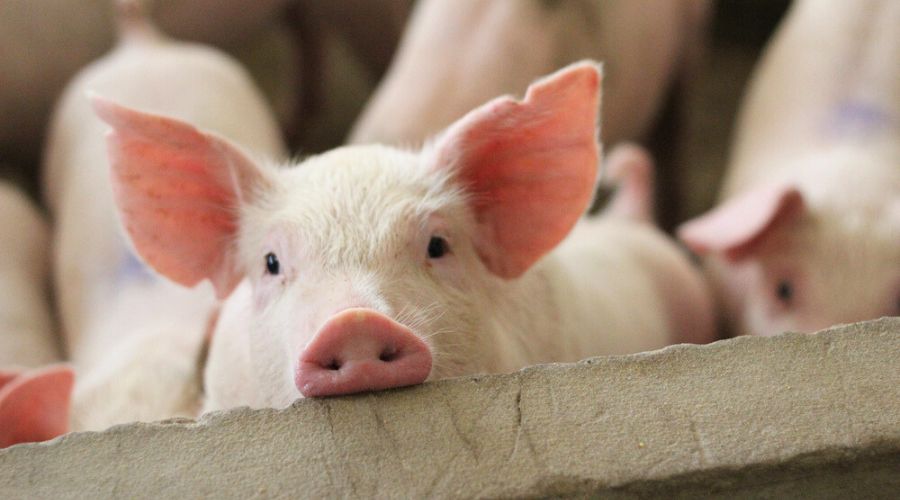Pig industry questions Defra’s plans to change food labelling rules
26th March 2024
Pig industry representatives have voiced their concerns following Defra’s plans for changes to food labelling regulations. According to the National Pig Association, the proposal may have “significant implications” for the pork supply chain.

Earlier this month, environment secretary Steve Barclay announced plans to make food labelling “clearer and fairer” as part of his commitment to back the British farming industry.
The proposal aims to give shoppers more information about how and where their food is produced and ensure British farmers’ products get the recognition they deserve, Defra says.
It would also ensure greater transparency around the origin of food and methods of production, helping consumers make decisions that align with their values.
The consultation looks at how to improve country of origin labelling for certain goods, including how and where this information is displayed and what products should be included.
For example, if imported pork is cured into bacon in the UK and features a Union Jack, the plan will explore ways to make it more obvious to consumers that the pig was reared abroad, such as increasing the size of the country of origin text, or placing it on the front of the packet.
The plan also sets out proposals to require ‘method of production’ labelling on pork, chicken and eggs. These include a mandatory five-tier label for both domestic and imported products, which would differentiate between those that fall below, meet and exceed baseline UK animal welfare regulations, which are some of the highest in the world.
Fairer and easier

MP Barclay, who announced the consultation at the Oxford Farming Conference in January, said: “British consumers want to buy their produce, but too often products made to lower standards abroad aren’t clearly labelled to tell them apart.
“That is why I want to make labelling showing where and how food is produced fairer and easier to understand – empowering consumers to make informed choices and rewarding our British farmers for producing high-quality, high-welfare food.”
Meaningful for consumers
In response, NPA pointed out that Defra pulled back from plans to consult on a tiered labelling system linked to method of production last year. This decision followed concerns from within the supply chain over the cost and complexity of the plans and fears they could mislead consumers over welfare claims.

NPA chief executive Lizzie Wilson said: “We will need to see the full details of what is being proposed before giving our verdict on whether they are workable and are likely to achieve their goals.
“The principle of greater transparency and clearer labelling to differentiate high quality British product from inferior imports, of course, has merit. The questions are going to be around how this is delivered in practice, without adding unnecessary costs.”
On the method of production labelling proposals, she added that the association was a part of a widespread coalition of industry bodies that opposed these plans when raised previously by Defra.
“It has to be meaningful for consumers and it could be very difficult to do this reliably for pigs, given that different parts of the carcase can go into many different markets, while there are real concerns over the cost and complexity that the requirement would add into the supply chain.
“We also need to avoid falling into the trap of claiming one system is automatically better than another – method of production is not an indication of good or poor welfare. We would also question how this could be reliably applied to imports,” Ms Wilson explained.
Defra’s proposal
Defra is seeking views on options for changing origin labelling, including:
- Mandatory origin labelling for minimally processed meat products, such as bacon.
- Increased visibility of origin labelling.
- Mandatory origin labelling for certain foods in the out of home sector, for example cafes and restaurants.
- Greater control of the use of national flags on labels.
The consultation also sets out proposals to require ‘method of production’ labelling on pork, chicken and eggs. These proposals include:
- A mandatory label for both domestic and imported products with five tiers to differente between products that fall below, meet and exceed relevant baseline UK animal welfare regulations. This would underpin standards that are primarily based on method of production.
- The label would cover pork, chicken and eggs. Labelling for dairy, beef and sheep meat will be kept under review, subject to further consultation.
- This would apply to all unprocessed pork, chicken and eggs and certain prepacked, loose and minimally processed products with pork, chicken or egg.
The consultation will run for eight weeks, closing on 7th May.
Have your opinion heard – email editorial@farmersguide.co.uk.
Read more livestock news.
